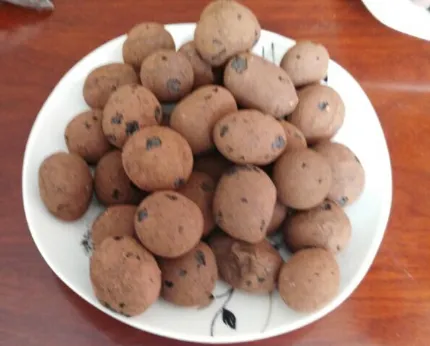The Benefits of Using Expanded Clay Pebbles in Hydroponics and Soil Gardening
Gardening enthusiasts and professionals alike are constantly searching for the best growing mediums to optimize plant health and yield. Among the many options available, expanded clay pebbles have gained significant popularity due to their versatility, durability, and excellent drainage properties. Whether used in hydroponics or traditional soil gardening, these lightweight clay pellets provide numerous advantages that promote robust plant growth. This article explores the key benefits of clay hydroponic pebbles, their applications in different growing systems, and why they are a superior choice for both beginners and experienced gardeners.

Growing Plants in Clay Pebbles for Superior Aeration and Drainage
One of the most significant benefits of growing plants in clay pebbles is their exceptional ability to improve aeration and drainage. Unlike traditional soil, which can become compacted and restrict root growth, expanded clay pebbles create air pockets that allow roots to breathe. This is particularly crucial in hydroponic systems, where oxygen availability directly impacts nutrient absorption. The porous structure of these pebbles ensures excess water drains quickly, preventing root rot and fungal diseases. Additionally, their neutral pH makes them suitable for a wide variety of plants, from delicate herbs to heavy-feeding vegetables.
Clay Hydroponic Pebbles as a Sustainable Growing Medium
Sustainability is a growing concern in modern agriculture, and clay hydroponic pebbles offer an eco-friendly solution. Made from natural clay that is heated and expanded, these pebbles are reusable and long-lasting. Unlike organic substrates that break down over time, expanded clay pebbles can be sterilized and reused for multiple growing cycles, reducing waste. They also do not introduce pests or pathogens into the system, making them a hygienic choice for indoor and greenhouse gardening. Their inert nature ensures they do not interfere with nutrient solutions, allowing for precise control over plant nutrition.
The Versatility of Growing Soil Clay Pebbles in Mixed Systems
While expanded clay pebbles are a staple in hydroponics, they also excel when mixed with traditional growing soil clay pebbles. Combining these pebbles with soil enhances structure, preventing compaction and improving water retention in sandy soils. For container gardening, a layer of clay hydroponic pebbles at the bottom of pots ensures proper drainage, while mixing them into the soil increases porosity. This versatility makes them ideal for raised beds, potted plants, and even aquaponics setups, where they provide a stable medium for beneficial bacteria to thrive.
How Expanded Clay Pebbles Enhance Root Development and Plant Health
Healthy roots are the foundation of vigorous plant growth, and expanded clay pebbles create an optimal environment for root expansion. Their lightweight nature reduces stress on delicate root systems, while their porous surface encourages the development of fine root hairs. In hydroponic systems, roots can easily penetrate the gaps between pebbles, accessing oxygen and nutrients more efficiently. Studies have shown that plants grown in clay hydroponic pebbles often exhibit faster growth rates and higher yields compared to those grown in traditional media. This makes them an excellent choice for commercial growers and home gardeners alike.
About Expanded Clay Pebbles FAQS
Many gardeners considering expanded clay pebbles have questions about their benefits and usage. Below, we address some of the most common queries to help you make an informed decision.
Are expanded clay pebbles better than soil for hydroponics?
Yes, expanded clay pebbles are often superior to soil in hydroponics because they provide better aeration, prevent waterlogging, and allow for precise nutrient control. Their reusable nature also makes them a cost-effective choice over time.
Can clay hydroponic pebbles be used in organic gardening?
Absolutely! Clay hydroponic pebbles are inert and do not contain synthetic chemicals, making them suitable for organic growing. They can be used with organic nutrient solutions to maintain a completely natural system.
How often should I replace growing soil clay pebbles?
Unlike organic media, expanded clay pebbles do not decompose and can last for years with proper care. Simply rinse and sterilize them between uses to maintain optimal growing conditions.
Do expanded clay pebbles affect pH levels in hydroponics?
Expanded clay pebbles have a neutral pH, meaning they won’t alter the acidity or alkalinity of your nutrient solution. This allows for greater stability in hydroponic systems.
Why should I choose clay pebbles over other hydroponic media?
Compared to alternatives like rockwool or coco coir, clay hydroponic pebbles offer superior drainage, reusability, and root support. Their lightweight structure also makes them easier to handle and transport.
Expanded clay pebbles are a game-changer for both hydroponic and soil-based gardening. Their ability to enhance aeration, support root health, and provide a sustainable growing medium makes them a top choice for cultivators worldwide. Whether you're a hobbyist or a commercial grower, incorporating clay hydroponic pebbles into your system can lead to healthier plants and higher yields. With their versatility and long-lasting benefits, it's no wonder they’ve become a staple in modern horticulture.
-
The Versatile World of Phlogopite Mica: Properties, Forms, and ApplicationsأخبارJul.14,2025
-
The Versatile Applications of Calcined Mica: From Decoration to Industrial UseأخبارJul.14,2025
-
The Role of Muscovite Mica in Industrial Insulation MaterialsأخبارJul.14,2025
-
Innovative Applications of Mica Flake in Paints and CoatingsأخبارJul.14,2025
-
Gardening Expanded Clay Usage: A Complete GuideأخبارJul.14,2025
-
The Use of Natural Mica Powder in Skincare ProductsأخبارJun.11,2025
-
The Role of Clay Pebbles in Soil AerationأخبارJun.11,2025








